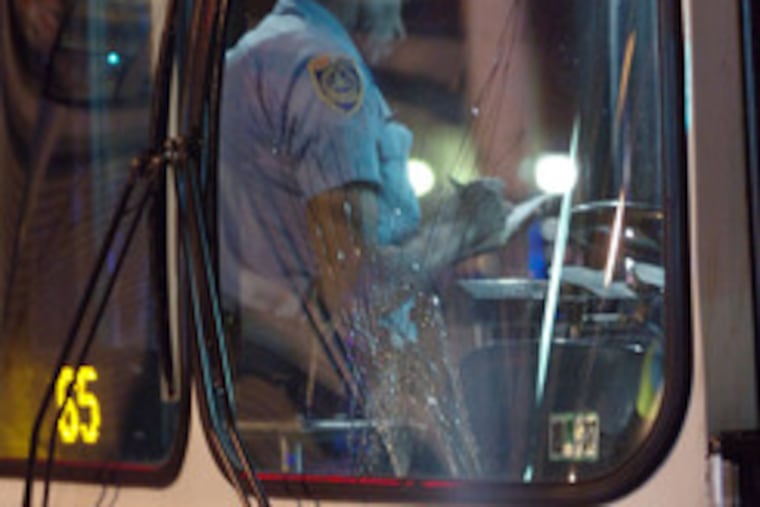Budget may have steered SEPTA out of $$ trouble
HOPEFUL that years of teetering on the brink of financial disaster are finally over, SEPTA spokesman Richard Maloney welcomed the imminent arrival of state funding that should keep the transit agency operating crisis-free for years to come.

HOPEFUL that years of teetering on the brink of financial disaster are finally over, SEPTA spokesman Richard Maloney welcomed the imminent arrival of state funding that should keep the transit agency operating crisis-free for years to come.
Shepherded by state Rep. Dwight Evans and state Sen. Vince Fumo - both Philadelphia Democrats - the transportation bill due to become part of the 2008 state budget in the next few days will erase SEPTA's $100 million deficit, eliminating the threat of 20 percent service cuts and 24 percent fare hikes in September.
"We believe that what the governor and legislative leaders announced [Monday] will take us out of the crisis mode we've been in for years and give us a workable operating budget for the next five, six years," Maloney said yesterday.
"We feel comfortable that the numbers are going to be there, the income is going to be there, so we can plan for the future and operate the system without having to frighten the public with the possibility of draconian fare hikes and service cuts."
Although the threat of a 24 percent fare hike and drastic service cuts would be eliminated by the expected influx of $150 million in new funding, Monday's 11 percent fare hike will be permanent.
There was no change in the $2 base cash fare or in the $1.30 token price, but a weekly pass rose by $2 to $20.75, a monthly pass rose by $8 to $78, paratransit one-way fares rose by 50 cents to $4 and Regional Rail one-way fares rose by an average of 11 percent.
Maloney said that SEPTA's first fare hike since 2001 was needed to keep pace with the steady increase in costs.
"We agree with the governor's transportation commission and with state legislative leaders that our ridership should pick up their share of these increased costs in the future," Maloney said, adding that he foresees modest fare hikes every few years.
Obscured by the $100 million crisis was SEPTA's decision to eliminate bus transfers on Aug. 1.
Having to pay two full fares each way instead of one full fare and a transfer could add $1.40 per day to the cost of going to school for 33,000 students.
"The school district is working with SEPTA on developing some kind of transportation pass for our students who rely on SEPTA every day to get to and from school," district spokeswoman Amy Guerin said yesterday. "We're hopeful to have a new program agreed upon and in place for the start of the school year."
Said Maloney: "We are meeting literally daily with the school district, trying to come to an agreement on a pass system for the students that will eliminate the need for both tokens and transfers.
"Frankly, we want to get out of the transfer and token business. It will be much easier for everybody involved to switch to TransPass," he said, referring to SEPTA's weekly and monthly passes. *